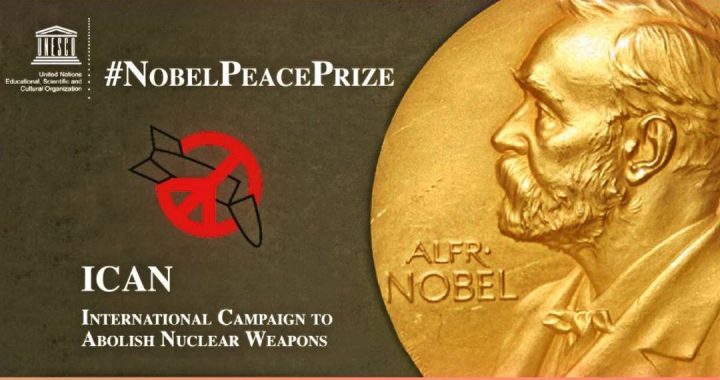Editor’s Note: This is the press release sent out by Ground Zero Center in response to Friday’s announcement of the 2017 Nobel Peace Prize.
****************
This year’s Nobel Peace Prize recognizes the central role of civil society in abolishing nuclear weapons.
The Norwegian Nobel Committee awarded the 2017 Nobel Peace Prize to the International Campaign to Abolish Nuclear Weapons (ICAN). ICAN is comprised of hundreds of partner organizations in 100 countries, of which, Ground Zero Center for Nonviolent Action in Poulsbo, Washington is one.
Leonard Eiger, Ground Zero Communications Coordinator, said:
“At a time when the potential for nuclear war is as high as it was during the 1962 Cuban Missile Crisis, this award recognizes the huge and critical role of the global movement for the abolition of nuclear weapons. The role of non-governmental organizations (NGOs), parliamentarians and citizens has never been more important.”
Civil society has played a central role over many years in drawing attention to the catastrophic humanitarian consequences of any use of nuclear weapons, and most recently in the negotiations at the United Nations (UN) that brought about the historic Treaty on the Prohibition of Nuclear Weapons.
122 nations voted to approve the Treaty, and so far over 50 nations have signed on. None of the nuclear-armed nations support the Treaty, and they continue to rely on nuclear weapons as instruments of foreign policy.
The current inflammatory rhetoric on both sides of the US-North Korean conflict, coupled with President Trump’s efforts to undermine the Iran nuclear weapons deal, are in direct conflict with efforts for peaceful conflict resolution among nations.
The Treaty on the Prohibition of Nuclear Weapons represents the best of what the global community is capable through the UN, and it provides a clear path to abolishing the greatest threat to humanity.
Ground Zero Center for Nonviolent Action applauds the decision of the Nobel Committee to support the efforts of those who work within a framework of mutual cooperation and consensus to negotiate mutual security assurances among nations.




